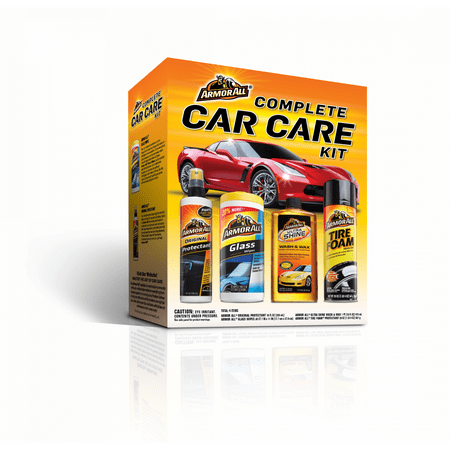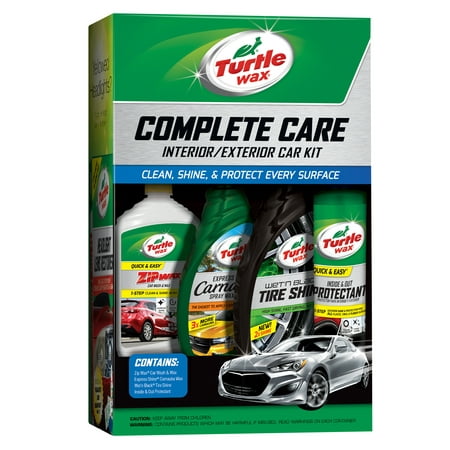Armor All Complete Car Care Kit (4 Pieces), Car Cleaning
The Armor All Complete Car Care Kit delivers four confirmed merchandise. Each one is formulated to enhance your car’s seems and shield your automotive funding. The set consists of Armor All Original Protectant, Armor All Ultra Shine Wash & Wax, Armor All Tire Foam Protectant and Armor All Glass Wipes. This automobile cleansing package helps save you the surface of your vehicle from fading, getting older, oxidation and cracking, while eliminating dirt and leaving it searching vivid. The glass wipes assist go away your home windows and windshield looking crisp, clear and beautiful as a way to give you higher visibility whilst driving. The Time Foam Protectant can assist your tires to look more recent, cleaner and greater herbal. This Armor All Complete Car Care Kit is an appropriate gift for the fanatic who cares deeply approximately the looks and circumstance of his or her auto.








Armor All Complete Car Care Kit (four Pieces), Car CleaningComplete automobile wash package for the auto enthusiast consists of four established Armor All products10 fl ouncesof Original Protectant that fights fading, getting old and cracking while defensive towards the effects of dangerous elements inclusive of UV and oxidation16 fl ozUltra Shine Wash & Wax that gently lifts away dust and can provide an amazing shine20 fl ozTire Foam Protectant that cleans your tires and restores a herbal, deep black appearanceGlass Wipes (30-remember) for spotless, sparkling glass cleansing with amazing readability and shine





Reviews
There are no reviews yet.